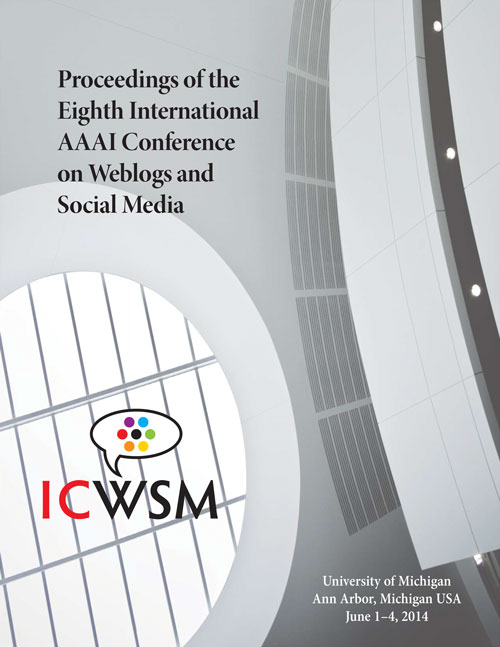Quantifying Information Overload in Social Media and Its Impact on Social Contagions
DOI:
https://doi.org/10.1609/icwsm.v8i1.14549Keywords:
information overload, information processing limit, diffusion networks, information propagation, social contagionAbstract
Information overload has become an ubiquitous problem in modern society. Social media users and microbloggers receive an endless flow of information, often at a rate far higher than their cognitive abilities to process the information. In this paper, we conduct a large scale quantitative study of information overload and evaluate its impact on information dissemination in the Twitter social media site. We model social media users as information processing systems that queue incoming information according to some policies, process information from the queue at some unknown rates and decide to forward some of the incoming information to other users. We show how timestamped data about tweets received and forwarded by users can be used to uncover key properties of their queueing policies and estimate their information processing rates and limits. Such an understanding of users' information processing behaviors allows us to infer whether and to what extent users suffer from information overload. Our analysis provides empirical evidence of information processing limits for social media users and the prevalence of information overloading. The most active and popular social media users are often the ones that are overloaded. Moreover, we find that the rate at which users receive information impacts their processing behavior, including how they prioritize information from different sources, how much information they process, and how quickly they process information. Finally, the susceptibility of a social media user to social contagions depends crucially on the rate at which she receives information. An exposure to a piece of information, be it an idea, a convention or a product, is much less effective for users that receive information at higher rates, meaning they need more exposures to adopt a particular contagion.

